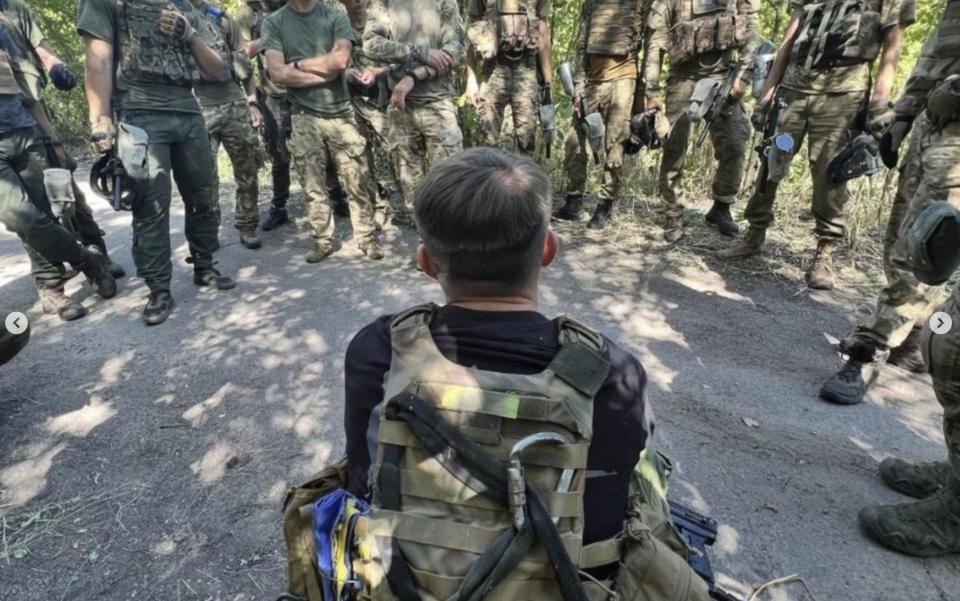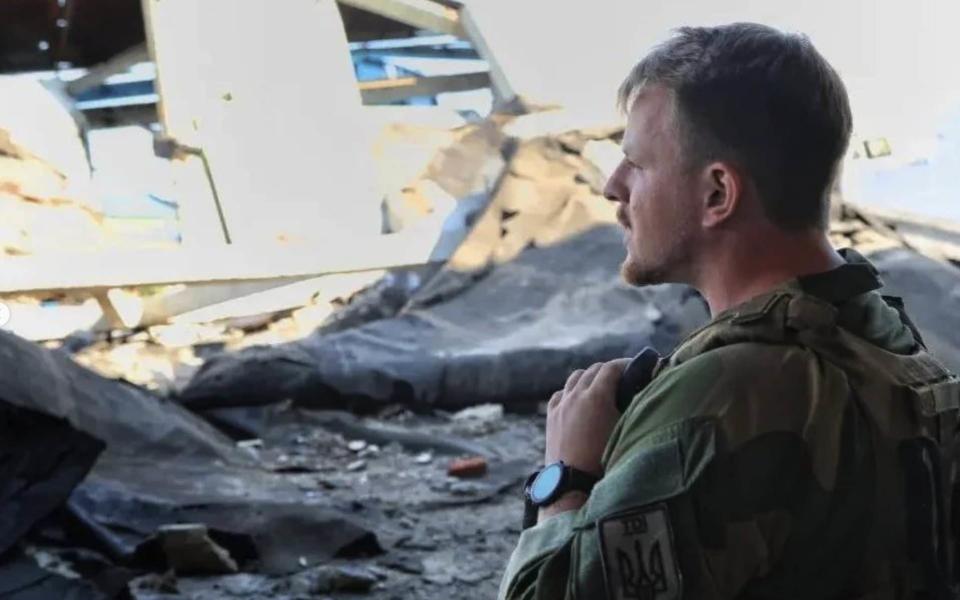‘Your training literally saved our lives’: the British soldier teaching Ukrainians how to fight

At a secret base outside the city of Kharkiv, ex-British soldier Daniel Ridley and his team drill hundreds of Ukrainian troops each week in the finer points of warfare.
From marksmanship to medicine, they teach the basic infantry skills that Ridley learned during four years with the Princess of Wales’s Royal Regiment.
Just one thing is absent from the training regime he went through as a young private: the sound of drill sergeants effing and blinding.
“That shouting is designed to see how people cope under pressure, but 90 per cent of our students have already seen heavy combat,” says Ridley. “They don’t need any lessons on what war feels like.” Croydon-born Ridley is no novice to war. After leaving the British Army in 2015, he served as a medic with Kurdish anti-Islamic State forces in Syria, and in 2018 joined Ukraine’s 36th Marine Brigade, fighting pro-Kremlin separatists in the Donbas.

The 27-year-old is one of a cadre of foreign military volunteers helping with the Ukrainian war effort. Only a few, like him, were serving with the Ukrainian forces before the conflict. Most arrived after president Volodymyr Zelensky made a plea in the war’s opening days for the formation of an “international legion”. While some estimate their numbers to be as high as 20,000, a more likely figure is closer to a tenth of that.
Ridley set up the Trident Defence Initiative (TDI), following the invasion, and has since helped more than 5,000 troops hone their skills. Today, it is Ukraine’s largest private military training programme, filling a gap left by the Nato training mission to Kyiv that pulled out when the war began.
As with many things in war, the TDI began after other plans went wrong. On February 23 last year, the day before the war broke out, Ridley was in Kyiv, where he lives with his Ukrainian girlfriend in the suburb of Bucha. His plan was to rejoin his comrades in the 36th Marines, tasked with defending the port city of Mariupol.
In the small hours of the following morning, however, he woke up to the sound of gunfire. Bucha was about to bear the brunt of the Russian assault on the capital – leaving them trapped.

“The first we knew about it was my girlfriend taking a phone call from her father – I remember seeing her face drop, and at that point I thought ‘Oh f---’,” Ridley says. “We started hearing explosions and gunfire, and seeing Russian helicopters in the air. A few days later, we lost power and gas, and the apartment next to ours was bombed. It was apocalyptic.”
In the initial fog of the war, nobody anticipated that Bucha’s name was about to become synonymous with war crimes: Russian troops would later be accused of massacring hundreds of civilians. Ridley, though, knew that the invaders were already doing house-to-house searches, arresting anyone suspected of links to Ukraine’s armed forces. As both a British citizen and a serving Ukrainian soldier, he was doubly at risk: Russian interrogators might conclude he was a spy.
“As a military-age male, I knew I was likely to be stopped, and that they’d be suspicious – I look more like a soldier than an IT worker,” he says. As Russian and Chechen units intensified their assault, Ridley set up a makeshift hospital in the basement of his apartment block, treating civilians injured by the shelling. By the third week, with food and water running out, he and his girlfriend had no choice but to flee. A humanitarian evacuation corridor had been set up, taking advantage of a patchy ceasefire. After escaping, his plan was to rejoin the 36th, but they had been forced to surrender after suffering heavy casualties during the lengthy siege of Mariupol.
He fought for a month with another unit, but then decided to focus on setting up a training mission, working with Ukrainians and other Western ex-military volunteers. Others in the 25-strong team include ex-British soldier Chris Edwards, US paramedic JD Beideman, search and rescue specialist Geoffrey Kinsey, and Ukrainian translator Oleksii Rudenko, previously a PHD history student.
“There are plenty of people out here willing to fight, but they’re not always well trained, particularly given how big the Ukrainian military has had to grow in the last year,” Ridley said. “There’s no point in buying them expensive kit if they don’t know how to use it.”

The two-week infantry course in Kharkiv has a firing range and expanses of woodland in which to practise manoeuvres, ambushes and drone warfare. It has flourished partly because of Ridley’s contacts within the Ukrainian military.
In October, the base was attacked by six Russian S-300 missiles, just as a TV crew was visiting from United24 Media, a digital outlet created by president Zelensky’s office to broadcast news of the war internationally.
The missiles narrowly missed their target, but footage of the attack and the TDI’s role in helping Ukraine went out on Zelensky’s presidential Instagram feed, which has 17 million followers.
It was a considerable plaudit to Ridley. He makes no claim to high-minded idealism: his decision to volunteer in far-off wars, he says, is borne as much of wanderlust as the desire to put his soldiering skills to use. “The training programme has been great, though, as it shows you can do things without having to be part of some big organisation,” he says. “It’s good to see soldiers leaving the programme, looking happy – and sometimes we get people coming back later saying: ‘Thanks guys, your training literally saved our lives’.”

 Yahoo News
Yahoo News 